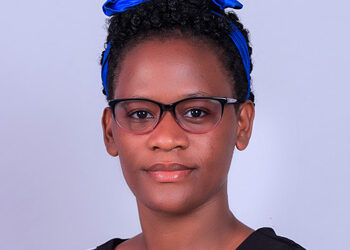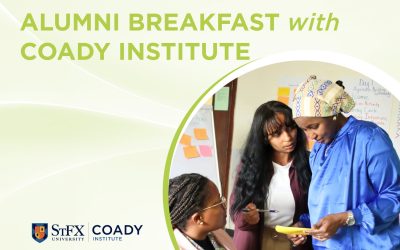All workshops are now full. However, we are re-offering these workshops in late fall/early winter. Check back for updates!
These workshops, open to First Nations, Métis, and Inuit participants residing in Canada, will provide an Indigenous approach to community-driven development and include the introduction of practical and straightforward community-building tools.
You will be able to bring these tools back to your community/organization and immediately implement them. The workshops will introduce you to IABCD principles, methods and tools for community-driven actions.
There are three series of on-line workshops scheduled. Please register for Part 1 and 2 of one series only.
Series 1 Workshop Full
Tuesday, Sept 29 – IABCD Part 15:00pm-7:30pm (Atlantic)Tuesday, Oct 6 – IABCD Part 25:00pm-7:30pm (Atlantic)
Series 2 Workshop Full
Tuesday, Oct 13 – IABCD Part 15:00pm-7:30pm (Atlantic)Tuesday, Oct 20 – IABCD Part 25:00pm-7:30pm (Atlantic)
Series 3 Workshop Full
Tuesday, Oct 27 – IABCD Part 15:00pm-7:30pm (Atlantic)Tuesday, Nov 3 – IABCD Part 25:00pm-7:30pm (Atlantic)
The workshops will introduce you to IABCD principles, methods and tools for community-driven actions. They include the introduction of practical and straightforward community-building tools. You will be able to bring these tools back to your community/organization and immediately implement them.
IABCD Part I Workshop
This workshop focuses on an introduction to an Indigenous approach to asset-based community-driven development. We will share stories of successful community-driven development, and differentiate between needs-based and asset-based approaches to development. You will be introduced IABCD principles, practice appreciative interviewing, and identify common themes and threads in stories of Indigenous community development.
IABCD Part II Workshop
The second workshop will introduce practical and straightforward community-building tools, including community asset mapping of individual skills, groups, economic opportunities, and natural and physical resources. We will focus mainly on demystifying your local economy with a tool called the “Leaky Bucket”. You will have the opportunity to practice using some of these tools in this workshop. You will also be introduced to examples of Indigenous communities engaged in using ABCD approaches and discuss how you can use them for community-driven action.
Our Approach
Coady is known for its interactive and participatory adult education approach. We are purposely limiting workshops to 25 participants to optimize your learning experience and ability to connect in smaller working groups.
Background
In September 2019, the Coady began sharing our work with partners around community building in Indigenous communities. The starting point of an Indigenous approach was the learnings we took from past experiences with Indigenous women leaders and communities. From that work, a set of IABCD principles emerged. These principles will guide us in these workshops and shape those to come:
These principles and our emerging practice in IABCD are part of an ever-evolving body of work that explores how Indigenous people build and sustain communities in the past and present. It has developed through our learnings from nine cohorts of Indigenous Women in Community Leadership (IWCL) program, our 2019 alumni gathering, on-going projects with alumni and their communities, and our work with partners.
What we have seen is that increasingly, Indigenous communities are turning away from the needs and deficit models and are instead, choosing strengths-based, assets- based approaches and community driven approaches. When communities are the drivers of solutions to their most pressing challenges, they are most successful. Moses Coady, founder of the Coady Institute, would say, “They are using what they have, to get what they have not.” We also understand that given the current realities of being in a global pandemic, directly engaging communities can be difficult. We will discuss strategies to address these challenges in the workshops.
In our upcoming, interactive online workshops we focus on sharing what IABCD is, its principles, methods and tools. You will leave these workshops with ideas, tools and approaches to effectively engage community members and identifying community assets. Come prepared to share your experiences and understandings of community development.
Workshop Components
This workshop is divided into three components:
1. Pre-workshop Preparation:
Includes logging into the workshop Facebook page and introducing yourself before the workshop. Also, reading or reviewing article(s), video(s), etc. before attending the workshop. Links to the FB page and related resources will be emailed to you one week before the workshop.
2. On-line Workshop:
Includes attendance at the 2.5-hour online workshop focused on an Indigenous approach to community development and includes the introduction of practical and straightforward community-building tools.
3. Follow up:
Complete our survey (emailed to you after the workshop) to help us improve our workshops and identify future workshop/webinar topics. Send any follow-up questions you have about the workshops to kpaul@stfx.ca.
Warm Hearts, Wider Change
Warm Hearts Foundation in Uganda focuses on empowerment through practical tools. From cosmetology and beautification skills to backyard farming and legal literacy, the foundation builds pathways to dignity, income, and self-sufficiency.
ALUMNI BREAKFAST with COADY INSTITUTE
EVENT: Join us as we celebrate 25 years of the Katherine Fleming International Development Award.
Carol Nyangoma Mukisa
Katherine Fleming International Development Award RecipientCountry: Uganda Current Organization: Warm Hearts Foundation Organization at the time you received Katie Fleming Award from Coady: Warm Hearts FoundationAs a women’s and children’s rights defender, I...


